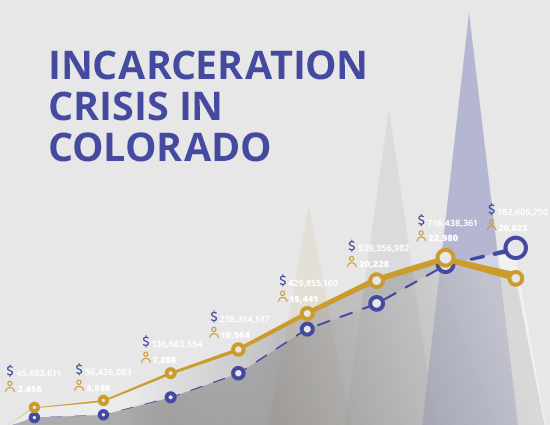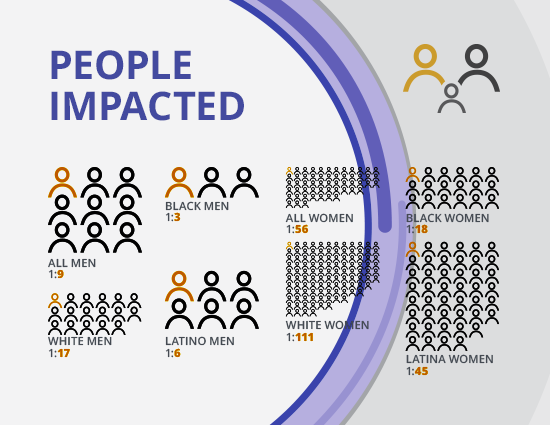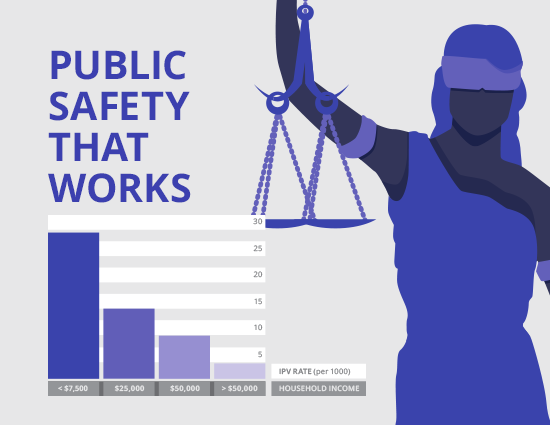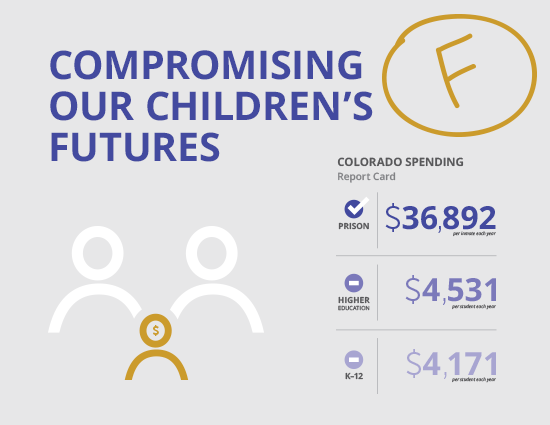CCJRC began in 1999 as the Colorado Prison Moratorium Coalition that formed to support legislation sponsored by Senator Dorothy Rupert (D-Boulder) and Representative Penfield Tate (D-Denver) that called for a three-year moratorium on building prisons in Colorado. This was the first bill of its kind in the country and it galvanized people in the community to come together to end mass incarceration. The bill died quickly because in 1999 many legislators believed it was absurd to halt prison expansion because putting more people in prison made us safer – didn’t it? The sponsors ran the bill again in 2000 to the same end.
We spent our first several years really focusing on deeply educating ourselves, talking with anyone who would listen, and building infrastructure to support collective action. In 2002 we had a new name, the Colorado Criminal Justice Reform Coalition, and we had hundreds of people and dozens of organizations and faith communities that joined the effort.
In 2003, CCJRC formally incorporated as a nonprofit organization. CCJRC had been jointly coordinated by the Rocky Mountain Peace & Justice Center in Boulder and Epimethian Press, a prisoner education and policy organization, in Colorado Springs. We outgrew that structure but will always be so grateful to have been nurtured and guided in such a supportive way.
Our first major legislative victory came in 2002 with major asset forfeiture reform and helped pass a parole reform bill in 2003. But that year also saw the passage — despite our best effort to oppose it — of another bill that committed taxpayers to paying over $182 million to build Colorado State Penitentiary II. The early years definitely felt like one step forward and two steps back because this was a time when state prisons were being built as fast as they could and the use of private prisons was expanding.
So, from the early to mid-2000s it seemed like our main focus was on opposing prison and jail expansion across the state. In 2003, CCJRC unsuccessfully sued the state to stop the construction of the Colorado State Penitentiary II. From 2004-2005 we organized with the local community and national anti-private prison activists to DEFEAT plans to build private prisons in both Lamar and Pueblo. The biggest battle was CCJRC’s co-coordinating the mighty but ultimately unsuccessful “fail the jail” campaign in 2005 in Denver.
By the mid-2000s, the political temperament was starting to change as Colorado became decidedly more “purple”. The growing frustration over out-of-control prison spending also created more opportunity for bi-partisan support for reform among legislators. In 2007, the Legislature created the Colorado Commission on Criminal & Juvenile Justice to make reform recommendations. CCJRC was asked to participate in many of the Commission task forces on reentry, parole, sentencing reform, and drug policy. Either through the Commission or on our own initiative, CCJRC played a leading role in the passage of over 30 bills and the reinvestment of tens of millions of dollars from the prison budget to community-based treatment and reentry services. Five prisons have closed since 2009.
Probably one of our most satisfying legislative victories was in 2014 when we helped create the first-ever grant program in the Department of Corrections to fund community-based reentry services. Now there is a network of community nonprofit organizations helping people on parole across the state. People with criminal histories are case managers and executive directors of many of these community groups. Their leadership is changing the landscape of community reentry and strengthening the support available to people leaving prison.
For the past few years, CCJRC has also been working with sister organizations in other states to build a network to strengthen the work across the country.
In reflection, so much has changed since 1999 when ending mass incarceration was not generally popular and we struggled for any traction. But we’ve learned so much from our successes and our defeats. In 2015, CCJRC underwent a year-long strategic planning and re-visioning process because we realized that our founding mission of ending mass incarceration was not broad enough and that any desire for a civil, equal and just society requires an end of the overuse of the entire criminal justice system – not just the overuse of incarceration. So, in late 2015 the CCJRC Board of Directors designated CCJRC’s new mission as: Eliminating the overuse of the criminal justice system and advancing community health and safety.
We will continue our core priority of reducing mass incarceration and serving as a resource for people who are directly impacted. We hope the information on this website helps you better understand our expanded focus as we grow into our bigger mission.
In addition to understanding our journey, we also want you to know who we are. We, or people we love, have criminal histories, are crime survivors, are in recovery (or not), or are some combination of all of the above. These experiences form the wellspring of our commitment, compassion and vision.
Please join us with your talent and time. We need you.




